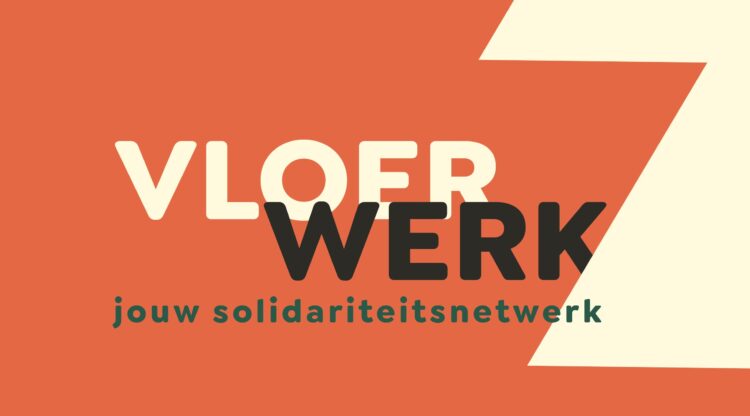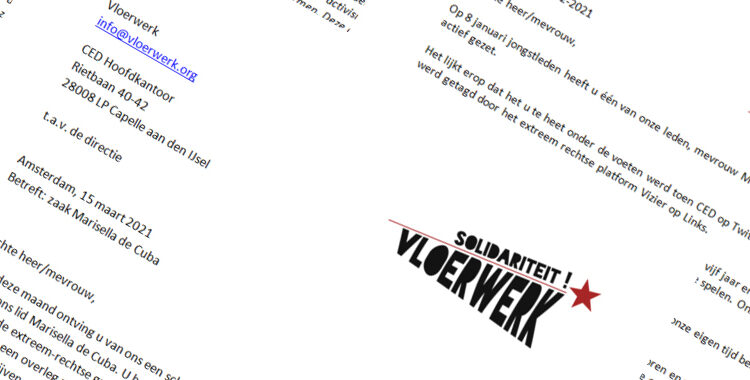
Greek workers are made into slaves... and are organizing
Picture: the reforms that “Europe” demanded of the Greek state, which complied, created a social desert. poverty, hardship, lack of perspective. Europe demanded this during the capitalisms last big crisis.
This in Greek – Dit in het Nederlands
Jerom and Bram interview Nikoletta for Vloerwerk about the structural labor exploitation of Greek workers in Greek restaurants in the Netherlands. Nikoletta is of Greek origin and lives in the Netherlands for around twenty years. She was already an activist at Reinform, an anti-capitalist organization that finds its origins in the protests that started with the national debt crisis in Greece. In addition, she has also gotten involved with labor migrants that have been made into serfs. Nikoletta helps them to organize and unite against the filthy labor practices that they are subjected to. A while ago she came into contact with Vloerwerk and now we are seeing whether we can help Nikoletta and the group she represents. But, let us start with Nikoletta herself.
Nikoletta, how did you get involved with these problems?
Via various Facebook pages I met Katerina Argo. She was doing hard work for Greek workers who are exploited in the Netherlands all by herself. She alone took the initiative. It started out as a public group on Facebook which workers, volunteers and activists joined. Katerina has often been threatened by Greek restaurant owners but she goes on relentlessly. The group grew quickly. Eventually another group came out of this Facebook page, namely a smaller and private action group. Here we try to actively help victims and fight the exploitation.
Every week we get new registrations of exploited workers: the numbers keep rising. Usually they are Greek workers in the Netherlands, but sometimes we also get Greeks from neighboring countries such as Germany or Belgium. Of course, people with other nationalities are also welcome to contact us, but we aim mostly at other Greek speakers.
You are talking about exploitation, can you further elaborate what that entails?
A lot of Greeks are in financial troubles. There is a lot of unemployment, people have debts and have basically hit rock bottom. They have no opportunities whatsoever and look for ways to make money. In Greece they get in touch with restaurant owners from all over the Netherlands who offer them work. This can go via a second cousin or an acquittance, but the contact is made easily and quickly.
The restaurant owner pays their flight ticket and offers them a place to stay. Verbally they agree that they will for instance earn €1200 euros per month. That is nowhere near the minimum wage in the Netherlands, but because it is more than the minimum wage in Greece, they agree. Then they come to the Netherlands where they are busting their balls for ten, eleven hours a day. That means that they make €5,45 euro per hour in a five-day work week! However, usually the workers work 6 days a week, which means that the average per hour is even lower.
The boss hands over the salary in a closed envelop every month, but it doesn’t always contain the €1200 euros which was agreed on. Often it is less and now with the corona crisis it has become even more frequent. The workers are pinched to a merciless degree.
A lot of workers turn to us with more than just financial troubles. People who make themselves known to us also relate stories of how bosses behave inappropriately towards their staff by for instance repeatedly shouting at them. They are also put into small houses with too many people. The workers are generally scared as hell to say anything because they are afraid that their boss will kick them out of their house. The threshold to take action is heightened even further because they don’t speak Dutch and they don’t know the laws and rules of the country. They really have nowhere to go.
An absurd and inhumane situation where we should not stand idly by! This brings images of The Grapes of Wrath to mind. What have you been able to do so far and what are your future plans?
Initially we sent a signed notification to the labor inspection. According to them they started a research into the matter, but they never told us what they did exactly. This is because, so sayeth the labor inspection, we are not a party. Because we didn’t want to leave at that, we asked for tips and tricks for concrete methods of taking action in a shout out on Facebook. Someone recommended to contact Vloerwerk, but we haven’t been sitting still ourselves in the meantime either.
For instance, we made a black list of restaurants from which we received more than one complaint. These concern restaurants in Barendrecht, Delft, Den Haag, Deurne, Driebergen, Eindhoven, Gemert, Heerlen, Leiden, Maassluis, Middelburg, Ommoord, Roermond, Wateringen en Weert. In Utrecht and Zeist there are even two restaurants per city that have made it to the infamous list. And bear in mind: these are just the restaurants for which we received multiple complaints. There are also individual complaints from a whole bunch of other places. It is a pattern that is spread out throughout the country.
We also have the names of the restaurants themselves, but we are not entirely sure what we want to with that. We are not sure whether we can just publish those names or not. Hopefully this is something that Vloerwerk can help us out with.
We have also helped the workers to make a non-anonymous notification with the labor inspection and the fraud inspection. However, we don’t know what they have done with these notifications. We are investigating whether we can take legal steps, but we do not want to only bet on the judicial horse.
As a group we would like to take direct action, such as writing up and sending a letter with demands that we will sign as a group. We want to do it this way because the burden and the risk does then not solely lie with individual workers. We also hope that the experiences of Vloerwerk can help us to give shape to our future actions. It is a pity that Vloerwerk only operates in Amsterdam, because the problem is spread out all over the Netherlands and so we will have to take action throughout the country.
They are mostly small companies, the restaurants that are involved, so we hope to achieve something with official and threatening letters of demand or with the help of official judicial organizations. And actually we should also demand more than what the Greek workers expect. The promised salary is already not in accordance with the legal minimum wage. We also consider getting in touch with organizations that fight human trafficking, because in a lot of cases I think we can speak of that practice.
How many workers have made themselves known with you so far?
We have more than 200 people now and we are getting around one or two new ones per week. 200 people may seem like a lot, but it isn’t when you want to take direct action. The fact that a lot of people are located in small villages throughout the Netherlands doesn’t make things easier either. It is hard to set things in motion as a collective. People preferably also remain anonymous. They are, again, afraid to be thrown onto the streets. We are therefore also frequently asked whether we can provide housing for the workers involved. They are afraid and think: ‘first accommodation, then I will come into action.’ You have to realize that when they are out onto the street they have nothing at all anymore.
Nikoletta, thank you so much for your candor and time. Are you also treated abhorrently at work? Or are you a exploited Greek worker? Then get in touch with Vloerwerk: together we stand strong!
Also see the facebook page of the initative


